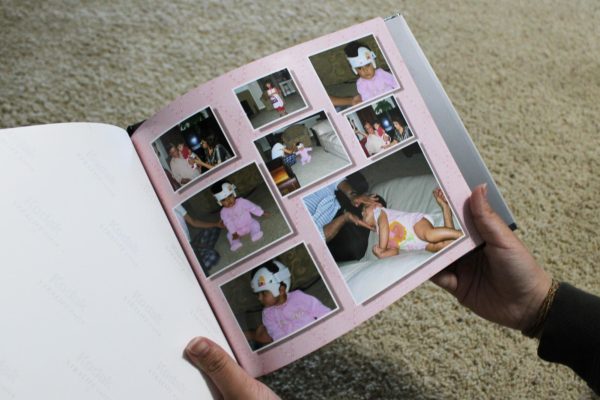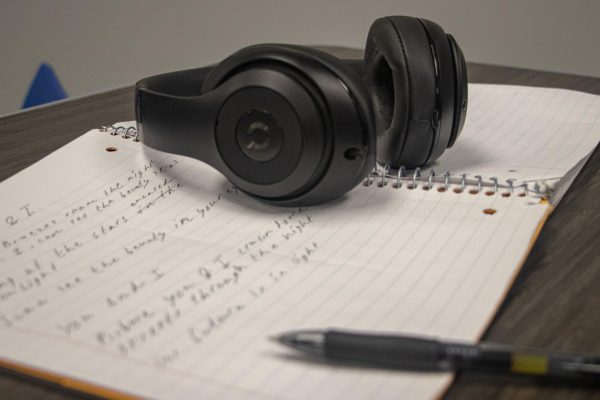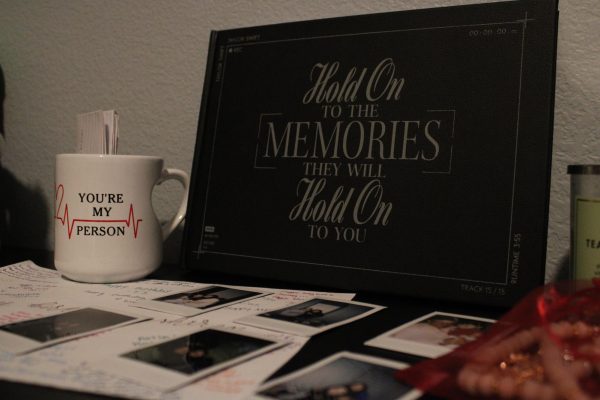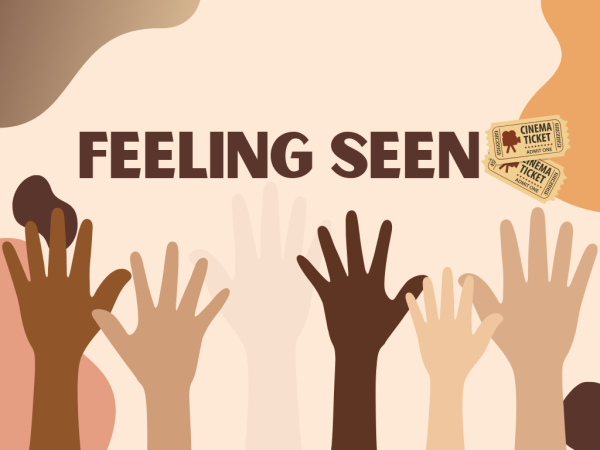Opinion: What doesn’t kill you makes you stronger
“Your nerves will most likely be permanently damaged.”
I feel my world crumbling as my surgeon explains the double reconstructive knee surgeries I will be undergoing over the next four months. He said that my knees didn’t sit in a socket, which explained why they dislocated so often.
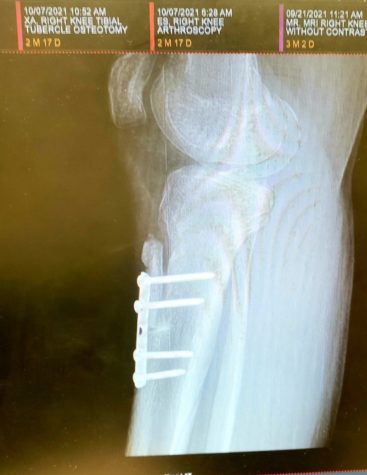
(Bree Andrews)
I run track and cross country, and my sport has been my anchor through every storm in my life. How can I run through my problems if I can’t even run?
It was my freshman year, and I spent the entire summer working for a varsity spot that would only be a few meets away if I continued to improve my times. How will I make varsity if I can’t finish my season? Will I even be able to run again?
In the weeks following my surgery, I was in denial. Sure, I had a countdown on my phone and I’d told all my friends, but surgery was just a word, and Oct. 7 was just a date. It wasn’t until the day arrived that the reality of my situation began to sink in.
I walked into that surgery center as the usual me, strong and independent. I knew who I was and what I wanted. I was a girl who dreamed of being the top runner of her cross country team, a girl with so many friends she couldn’t name them all off the top of her head and, most importantly, a girl who was confident in who she was.
I was wheeled out of that surgery center hours later on a narcotic painkiller strong enough to drown out the thoughts in my mind, but not the aching pain in my knee. My old self was shattered along with the bones in my leg, and rearranged into something new, but still broken.
In the weeks that followed, I experienced a pain so horrible words can’t describe it. Even oxycodone, a powerful narcotic painkiller, wasn’t enough to dull the agony I felt every time I tried to move. The muscles in
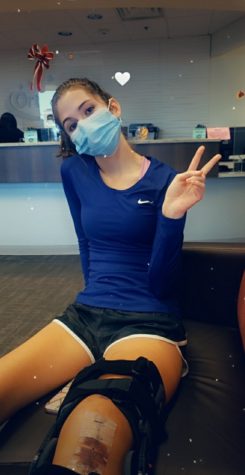
my leg began to atrophy and forgot how to work together. I began to lose a significant amount of weight from my pain killers and experienced fainting spells.
When I returned to school, I felt like a shell of my old self. I was weak and tired – it took all my energy just to pay attention in class. Rather than going out with friends, my weekends were spent resting in bed. I began to drift away from most of the people I was close with and, after a few weeks, I could count the friends I talked to daily on one hand.
It wasn’t until I began to start physical therapy that I began to see a light at the end of the tunnel. I’ll never forget the first time I was able to lift my leg without assistance after two weeks of working in physical therapy. Gaining a small piece of independence was the most rewarding feeling. In the past, I ran races and worked out until exhaustion, but that didn’t compare to finally seeing my strength begin to return.
After that moment, all I could focus on was regaining my strength. I attended physical therapy twice a week and spent the other three days in the athletics trainers’ office at school, completing knee exercises and stretches.
However, even through I though I was slowly getting physically stronger, my mental health declines. Recovery wasn’t easy like in movies; coming back from an injury wasn’t a montage. It was waking up as a new person. I was depressed and anxious- I felt like I had lost everything that was important to me. I had lost my health, my sport and my freshman year experience.
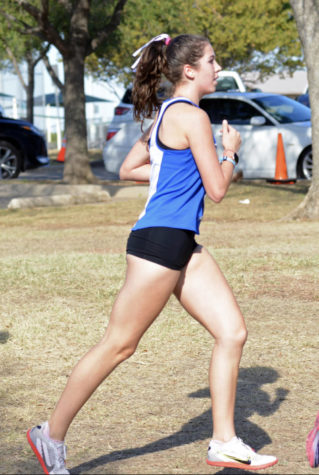
It was months before I realized that I was digging myself deeper and deeper into a pit of self pity. At some point, I had to wake up and realize that with everything I had lost, I gained something in its place. I lost my strength, but I gained resilience. I drifted away from many friends, but I recognized the people in my life who stood with me through thick and thin.
It’s easy to feel sorry for yourself when life knocks you down, but learning to get back up again is what teaches you perseverance. When you’re standing back on your feet again, you realize that you’re stronger than before.

Sophomore Bree Andrews is a reporter and this is her first year on staff. In her free time she enjoys spending too much time on Pinterest, watching cheesy...






